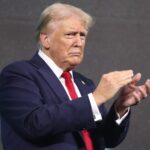The United States has approved two major arms sales to India valued at $92.8m (£71m), including Javelin anti-tank missiles and Excalibur precision artillery projectiles, according to the US State Department. The decision comes nine months after Indian Prime Minister Narendra Modi met former US President Donald Trump in Washington, where the two leaders reaffirmed their commitment to deepen defence cooperation.
In October, the meeting paved the way for a framework agreement aimed at expanding bilateral defence collaboration over the next decade. The move arrives as India looks to reduce its dependence on Russian military hardware, amid reports that Trump encouraged New Delhi to increase purchases of American-made weapons systems.
Although Russia remains India’s primary arms supplier, its share of India’s defence imports has declined significantly—from 62% to 34% between 2017 and 2023—as India gradually shifts towards procurement from the United States and other Western partners. Meanwhile, defence trade between India and the US has risen dramatically from virtually zero to approximately $20bn, positioning the US as India’s third-largest defence supplier, behind Russia and France.
The US Defense Security Co-operation Agency (DSCA) stated that the approved weapons sales are intended to “enhance India’s capability to address current and future threats”. One of the deals involves a $45.7m supply of the Javelin Missile System, comprising 100 FGM-148 Javelin missiles, one “fly-to-buy” missile, and 25 lightweight command launch units. The package also includes simulation rounds, training support, spare components, technical guidance, and logistical assistance.
In a separate notification, the DSCA confirmed clearance for a $47.1m sale of up to 216 M982A1 Excalibur tactical artillery projectiles. This deal encompasses fire-control systems, primers, propellant charges, technical documentation, and repair and maintenance services.
The DSCA highlighted that the proposed transactions would “support the foreign policy and national security objectives of the United States” by reinforcing strategic ties with India, which it described as “a key contributor to political stability, peace, and economic progress” in the Indo-Pacific region and South Asia. It further noted that India is expected to “readily integrate” the equipment into its existing military infrastructure.
The development comes as Washington and New Delhi continue efforts to finalise a wider trade agreement amid lingering tensions. These tensions followed Trump’s decision to impose 50% tariffs on Indian goods, alongside a 25% penalty targeting India’s purchase of Russian oil and arms.






